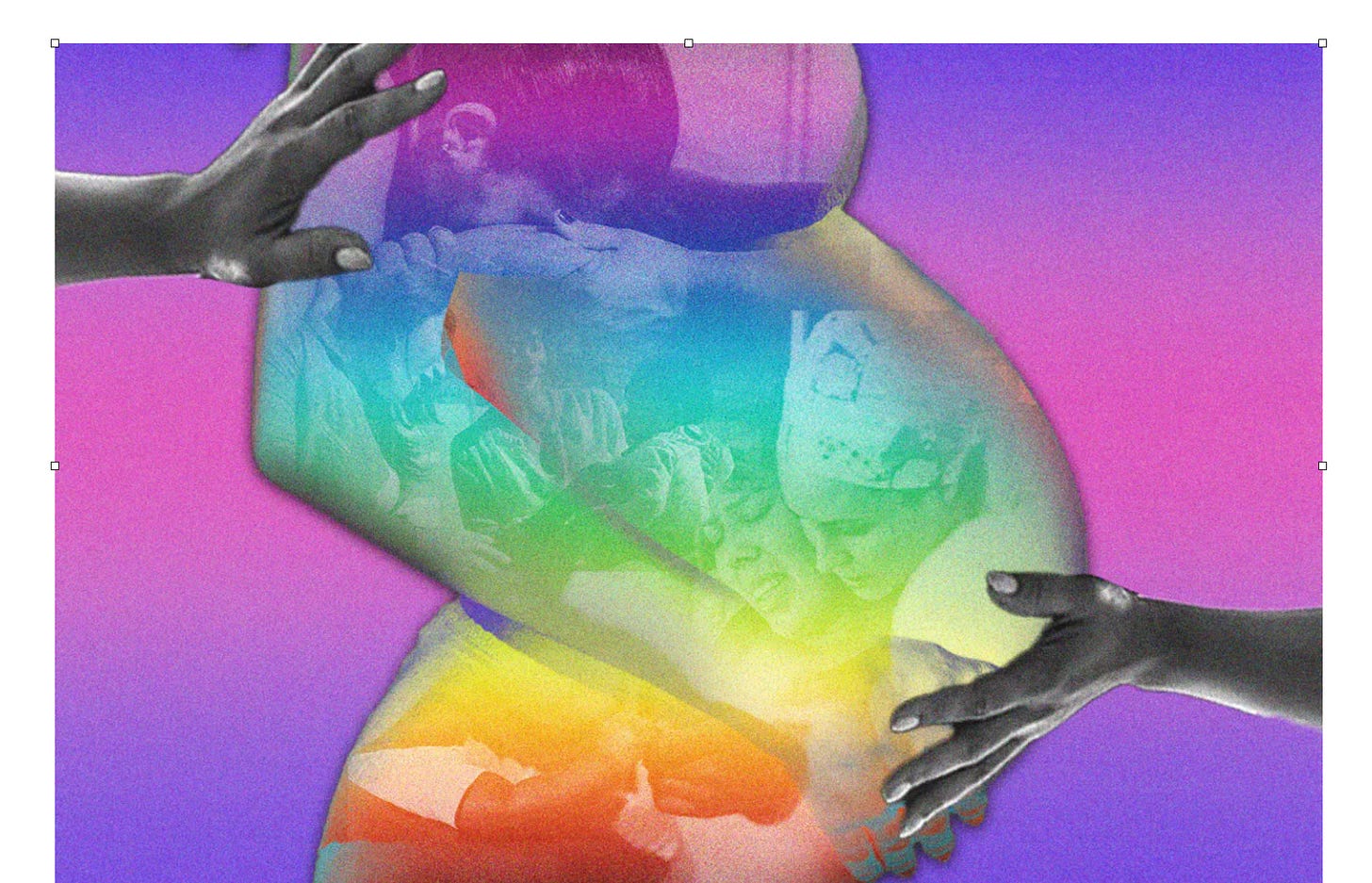Global Roundup: Queer Doulas Support for LGBTQ+ Pregnant People, Ghana's 1st Female World Boxing Champ, Spain Ex-Football Boss Convicted & Fined, LGBTQ+ Dating Apps, African Women Artists Thriving
When Vicki Bloom became a doula in 2009, hiring one was far from top of mind for most families, especially queer ones. But as their popularity grew, so, too, did interest from pregnant people. Queer doulas like Bloom began offering services across the country, which meant queer parents could have someone on their birth team who deeply understood their identities.
A doula can offer support at any point in a pregnancy journey. Some people may want one by their side from the time of a positive pregnancy test, while others don’t bring one into the fold until the last trimester.
Unlike medical staff, a doula’s main purpose is to offer support and advocacy for the pregnant person and anyone else who is part of their birthing experience. A doula could attend doctors’ appointments, help pick out the items for a registry, and dispense advice about the various issues that come up throughout pregnancy.
During labor, they are often a pregnant person’s first phone call. They can help determine when to come to the hospital, offer a back massage during a contraction, help you find comfortable and helpful positions, and advocate for your birth plan. For queer people, they can also make sure the obstetrician or nurses at the hospital don’t deadname or assume same-sex partners are siblings.
Research has shown that folks who use doula are less likely to have c-sections, les likely to need Pitocin (which helps move the labor process along), and more likely to rate their childbirth experience positively.
Bloom’s major objective as a doula is to remind the birthing parent that pregnancy doesn’t change who they are as a person in the world. The industries associated with pregnancy and birth are still deeply heteronormative. It can be tough for queer parents to navigate that alone. A doula who knows how to work with queer families makes it easier to shut out some of the noise and make having a child an enjoyable experience.
A lot of what ended up being appropriate for me as a private practice was working with marginalized people who shared identities with me as a queer person myself. So I ended up working with a lot of queer folks: a lot of lesbian couples, triads, nonbinary people, or other nontraditional families who were giving birth. I connect with all different kinds of people, but I found that was a group of clients that was drawn to me and that I was drawn to work with. I don’t feel myself as a specialty practice per se, but I am very open about who I am, what my life looks like, and what my family looks like. -Vicki Bloom
Bloom told LGBTQ Nation that queer and other marginalized people know how they interact with the medical system, so they know where they may have trouble communicating, and that’s where Bloom’s work comes in.
Some of it is helping find resources like a childbirth class that’s gender fluid or an OB that’s not going to misgender you all the time. And sometimes that’s possible and sometimes it’s not because of the realities of the medical situation. One big thing is people don’t want to do a 101 with all of their medical professionals…I’ll ask my clients sometimes if they want to code switch when someone’s in the room or do they want me to step in every time and be like, “Hey, no, their pronouns are they/them.” -Vicki Bloom



